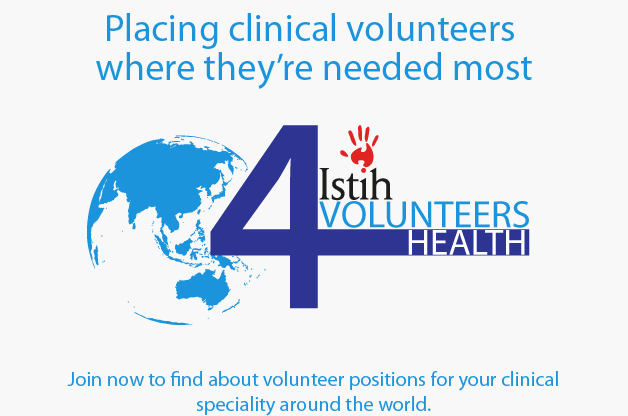ISTIH presents a multidisciplinary approach to managing aid projects, with the ability to facilitate international health and other aid projects in related sectors. The Institute collaborates with and has alliances among government and non-government organisations (NGOs), Australian and regional institutes and universities, bilateral donors, multilateral agencies and global foundations. With these alliances ISTIH provides an holistic approach to the provision of services to the aid sector.
The Institute has nodal representation with major regional hospitals and universities and medical schools as partners. In the case of Indonesia, ISTIH has access to more than 500 Indonesian specialists and nurses, as well as to established under and postgraduate training programs.
ISTIH offers strong leadership skills and experience in developing programs across many clinical disciplines and geographical locations.
1. Growing ISTIH’s nodal representation
ISTIH continues to grow its nodal representation through partnerships with leading public universities and public teaching hospitals within the Asia-Pacific region. Further, ISTIH continues to develop closer regional government relationships in health between Australia and our neighbouring countries.
2. Expanding the network of training nodes through the Asia-Pacific region
ISTIH is engaged in identifying new opportunities within the Asia-Pacific region to replicate the Indonesian Clinical Training and Education Center (ICTEC) model. ICTEC was set up and established following ISTIH’s program of funding Indonesian doctors and health professionals to travel to Perth for training and vice versa. Through a collaborative partnership between the Indonesian Government, ISTIH, UWA (CTEC), Rumah Sakit Cipto Mangunkusumo Tertiary Hospital and the University of Indonesia, ISTIH has been able to establish ICTEC.
The Indonesian ICTEC centre is located in Jakarta and has similar equipment and facilities to CTEC at UWA. Today the $40+ million centre is operational and is servicing over 100 hospitals in Jakarta and doctors spread across 33 provinces = one unit of our input sees two million units output.
Since its inception in 2010, over 1000 doctors, medical students and health professionals have participated in training programs at ICTEC.
3. Developing the “Train the Trainer” program
One of ISTIH’s core programs is the ‘Train the Trainer’ outreach. Through its local, national and international clinical volunteer database, the Institute has access to specialist, high level trainers. The group comprises of specialists, doctors, nurses, maternal health and allied health workers, with extensive experience in health training, based out of Western Australia and within the region.
Through this program, ISTIH is able to establish and deliver health training programs to in-country health professions which, amongst other valuable outcomes, allows for leadership in the health areas. In conjunction with this program, ISTIH is engaged in consultancies which assist in the dissemination of technical assistance that strengthen health systems of developing nations.
4. Expanding ISTIH Elective Placement Scholarship
Through nodal partnerships, ISTIH is looking to further develop and expand its elective placement scholarship program. Initially the program has been established in conjunction with the University of Western Australia. However the intention is to include multiple universities and organisations. These scholarships currently provide support for students enrolled in the course for the degree of Bachelor of Medicine and Bachelor of Surgery (MB BS) and undertaking an approved Elective Placement overseas in the Faculty of Medicine, University of Indonesia in Jakarta.
As the Institute is currently involved in maternal and child health programs, ISTIH intends to expand its scholarship program with its core partners into maternal and child health and other allied health areas.
5. Increasing ISTIH’s public awareness platform
ISTIH aims to increase the frequency of the current program of public forums, seminars and high level workshops. ISTIH provides advice and awareness in response to critical and under developed health issues in neighbouring countries of the Asia Pacific region. With effective alliances and networking, ISTIH continues to further demonstrate successes in partnerships that produce collaborative programs to assist neighbouring countries and their populations.
6. Developing ISTIH’s policy development interface
ISTIH initiates dialogue with senior policy-makers and is commissioned to contribute to policy review and development in all areas of health skills and training. These include, but are not limited to, disaster and emergency management, maternal and child health, nursing care and triage.
7. Promoting ISTIH’s biomedical engineering expertise
ISTIH is looking to further promote its involvement and ‘Train the Trainer’ expertise in biomedical engineering. ISTIH continues to be well positioned to engage in commissioning and training with new equipment donated by aid organisations and individual donors following disasters and humanitarian crises. Other initiatives include the possible future relocation of medical equipment assets not suited to a demographic or geographic location. Additionally, within neighboring countries, ISTIH operates at a national level on redeployment options for aging equipment and the facilitation of foreign donated equipment.
ISTIH continues to facilitate biomedical support programs in the region, through local servicing and maintenance of existing portfolios of regionally owned medical equipment. A particular focus of this program is to maximise the utility of more technically advanced equipment donated under Aid programs.



